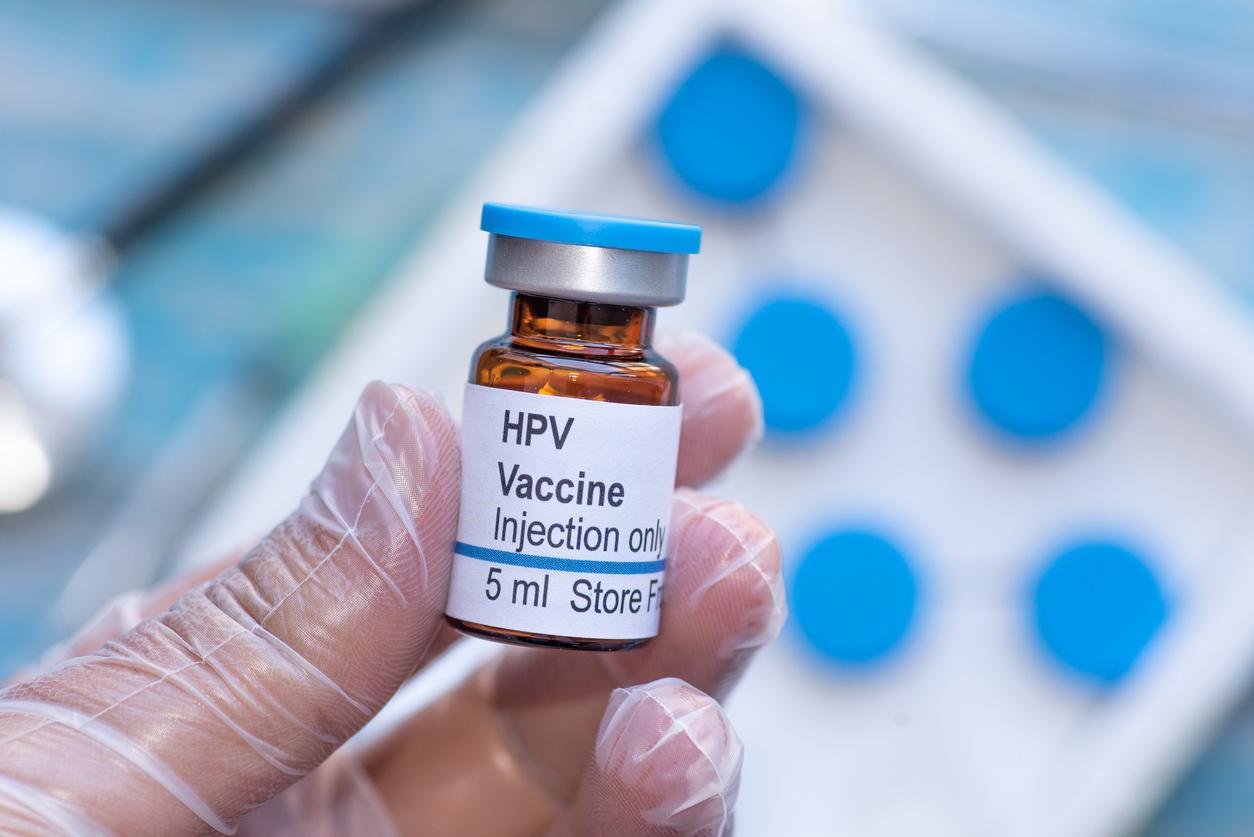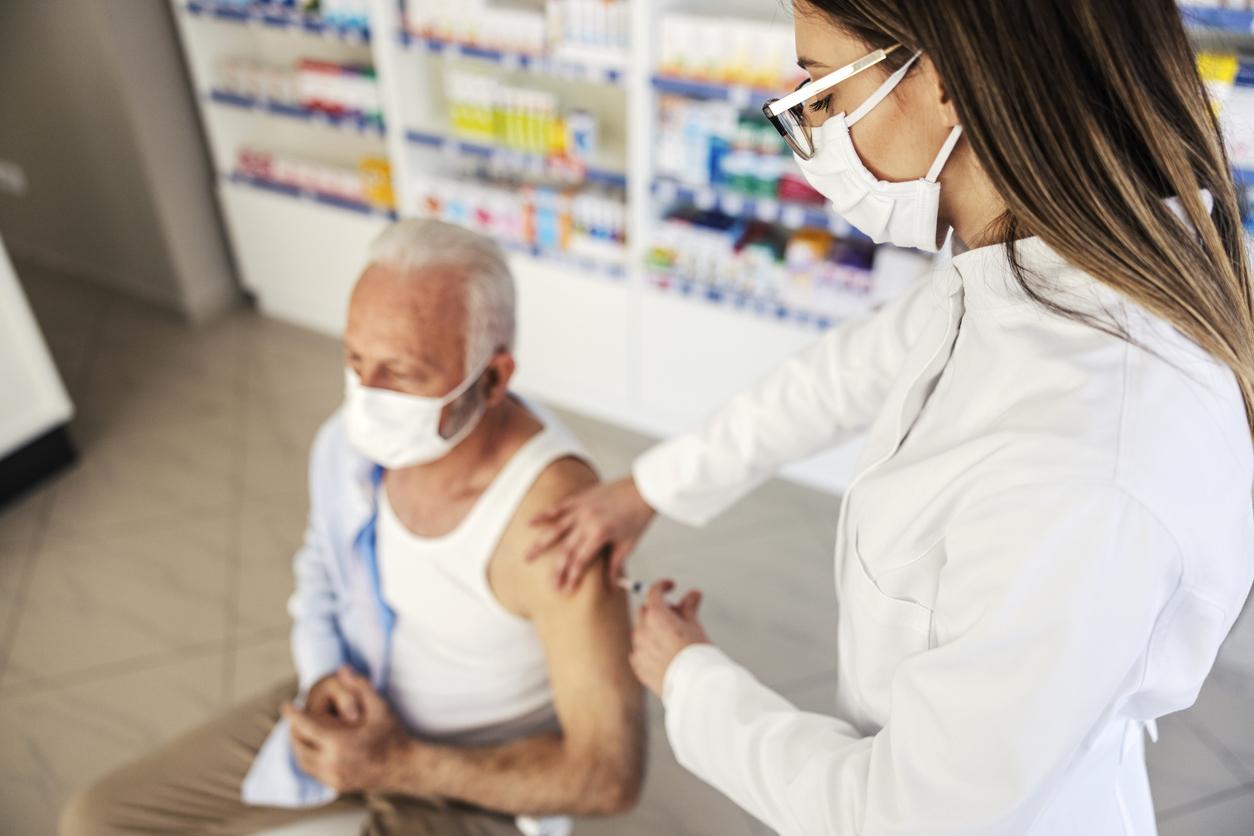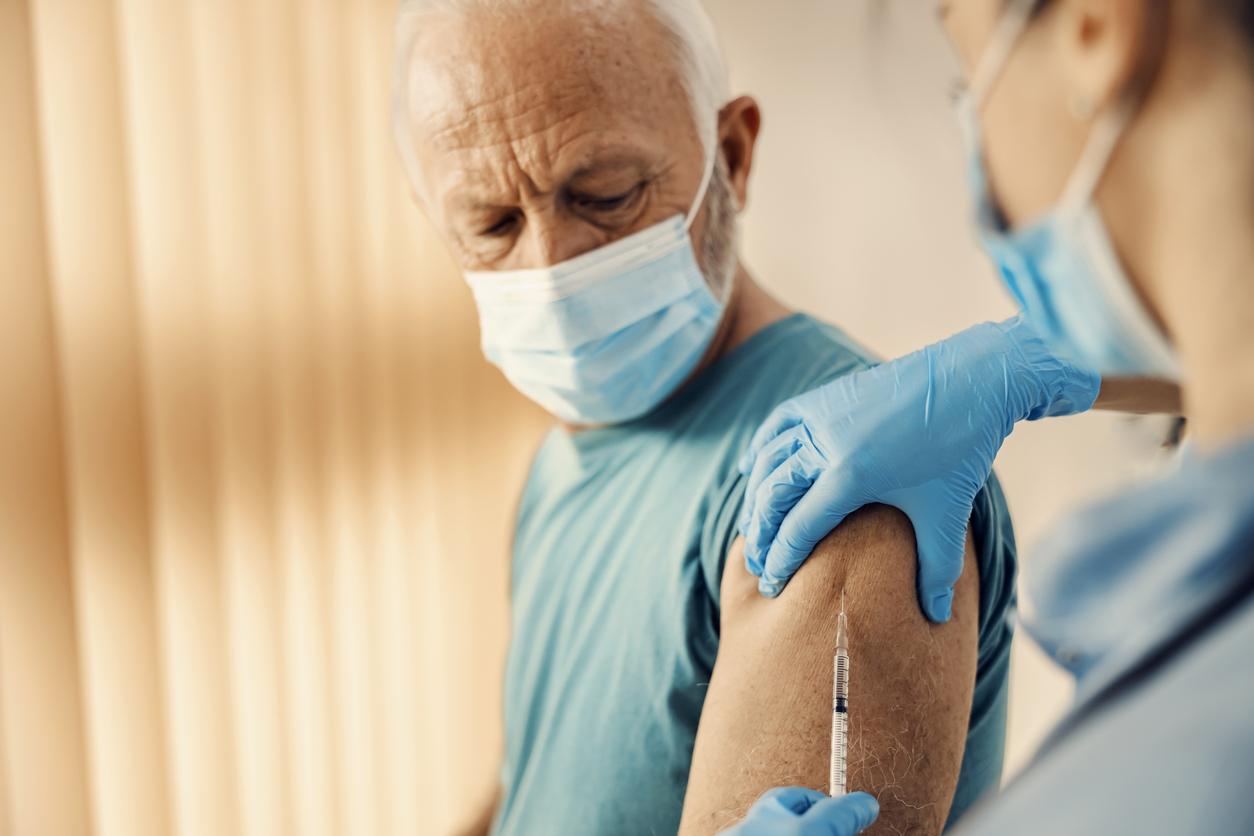SUMMARY :
- Teenagers between 12 and 17 years old can do their booster dose: how long?
- Is the 3rd dose compulsory for the vaccine for 16-17 year olds?
- 3rd dose: when should you give the injection?
- When to call back if you have been infected with Covid?
- 3rd dose: with which vaccine: Pfizer or Moderna?
- 3rd dose: stronger side effects?
- 3rd dose of booster vaccine: compulsory for the vaccination pass?
- 3rd Covid dose and flu vaccine: how does it work?
Teenagers between 12 and 17 years old can do their booster dose: how long?
Until now, the booster shot was open to all adults over the age of 18 as well as to young people aged 12 to 17 who are immunocompromised or have a high-risk pathology or a comorbidity.
Thursday January 20, during a press conference, Jean Castex announced the opening of this booster vaccination to adolescents between 12 and 17 years old, but “without obligation“.
And for good reason: the High Authority for Health, seized on the question, has not yet delivered a recommendation.
When to make this reminder? Teenagers aged 12 to 17 can make an appointment from January 24, respecting 6 months after their last injection.
Is the 3rd dose compulsory for the vaccine for 16-17 year olds?
The vaccination pass, which will come into effect on Monday January 24, will be required from the age of 16. However, the booster dose will not be required for the validity of their vaccination pass. In other words, their pass remains valid, as long as they have two injections.
Concretely, adolescents aged 16 and 17 are therefore not concerned, for the moment, by the injection of a third dose to obtain the vaccination pass. The High Authority for Health (HAS) has been seized by the Ministry of Health on this subject. 16-17 year olds are therefore considered fully vaccinated with two doses.
3rd dose: when should you give the injection?
When the booster campaign was launched, it was recommended by the HAS to take the booster dose within a minimum of 5 months after the second injection.
Now, this deadline has been reduced 3 months after the last injection of the initial vaccination schedule or after a Covid-19 infection if this occurred after vaccination.
(For 12-17 year olds, the deadline is 6 months after the last injection).
People vaccinated with Janssen should receive an additional injection as early as 4 weeks after their vaccination, then a booster dose as early as 3 months after this.
For immunocompromised people, it is recommended to follow the advice of their healthcare professional as to the most suitable vaccination schedule.
When to call back if you have been infected with Covid?
Vaccines Pfizer, Moderna, Astrazeneca:
- If you have contracted Covid before vaccination and received a single injection, you may receive a booster dose (2and dose) 3 months after your 1time vaccine dose.
- If you received a first injection, then have been infected with Covid, you can receive a booster dose (2and dose) 3 months after infection (date of positive test).
- If you contracted the Covid after your 2and dose of vaccine, you can carry out your booster (3and dose) 3 months after infection (and up to 7 months).
Janssen vaccine:
- For people who have had Covid-19 before their injection of Janssen vaccine, the booster dose is given 1 month after the dose received.
- For people who have had the Covid after their injection of Janssen, two situations:
- If the infection dates from less than 15 days after the injection: people receive an additional dose of mRNA vaccine 4 weeks after infection. They are eligible for the booster vaccine from 3 months after this additional dose.
- If the infection dates back more than 15 days after the injection: people do not need to complete their vaccination schedule with an additional dose. They are eligible for the booster from 3 months after infection.
3rd dose: with which vaccine: Pfizer or Moderna?
Vaccination can be done with an mRNA vaccine, Comirnaty® from Pfizer or Spikevax® from Moderna.
- Before 30 years old, only the Pfizer vaccine is recommended due to higher risk of myocarditis with this vaccine.
- After 30 years, both RNA vaccines – Pfizer and Moderna – can be used, including heterologously if desired (1st dose Pfizer, 2nd dose Moderna and vice versa). The HAS also estimates that the Moderna vaccine has a vaccine efficacy, which “seems slightly better”. This is proving “particularly interesting for people at risk of a severe form of Covid-19”, she specifies.
For example, a 25-year-old person who would have received the Moderna vaccine for his primary vaccination schedule will preferentially receive a dose of Pfizer vaccine for his booster.
A 60-year-old person who would have received the Pfizer vaccine for their primary vaccination regimen may well receive a half dose of Moderna vaccine for their booster.
3rd dose: stronger side effects?
The side effects experienced at the end of the booster dose are similar to those recorded after the first dose. According to the latest pharmacovigilance report from the Medicines Agency, as of January 3, 2022, more than 16.8 million booster doses have been administered and 716 serious cases have been reported since the start of vaccine boosters. “No specific signal was identified in people who had a booster dose. The profile of reported adverse effects is similar to that reported in a comparable population”.
The US data where the recall campaign started in mid-August is also reassuring. “The frequency and type of side effects are similar to those seen after second doses of vaccines, and they were mostly mild or moderate, and short-lived“, indeed declared at the end of September, US CDC Director Rochelle Walensky. Just over 22,000 of the first Americans waiting for a third dose (many of them immunocompromised patients) had shared their side effects after their third injection via their smartphones, as part of the CDC’s vaccine safety monitoring system. . Of those participants who received a third injection, 71% reported injection site pain, 56% fatigue and 43% headache.
3rd dose of booster vaccine: compulsory for the vaccination pass?
The vaccination pass, which will be required on January 24, will – like the health pass – be conditional on a complete vaccination schedule, including the booster dose. Otherwise, the pass will be deactivated 7 months after the last injection.
Let’s imagine that your 2nd dose dates from July 15, then the booster vaccination is possible from December 15. The pass will not be deactivated right away to give you time to make an appointment. It will be deactivated only as of February 15.
3rd Covid dose and flu vaccine: how does it work?
In its opinion of August 24, the HAS recommended starting the booster shots at the end of October, at the same time as the anti-influenza vaccination campaign, for organizational reasons and because the priority target people are the same (those over 65 and people with chronic conditions). But, it is also possible to do the Covid reminder before October 26, so before the flu vaccine.
How? ‘Or’ What ? The double flu / Covid vaccination can already be done if you are over 65 or if you suffer from a chronic pathology or an immunity disorder. In one opinion of September 27, HAS confirms that this “co-administration” does not involve any danger. Concretely, both injections can be given on the same day, one vaccine in each arm.
Where to make an appointment for this double vaccination ? Priority people receive a health insurance voucher to collect their flu vaccine at the pharmacy and be vaccinated by the professional of their choice (doctor, midwife, nurse or pharmacist). That’s good: the Pfizer vaccine has been available in town since October 1st. The two injections can therefore be done at the same time in pharmacies, in medical and nursing offices. from October 22, as soon as the flu vaccine becomes available. Another possibility: collect their flu vaccine from the pharmacy and bring them to the vaccination center on the day of their appointment for their Covid reminder.
What if we don’t do both injections on the same day? In this case, the HAS specifies that there is no time limit to be observed between the two vaccinations. The two vaccines can therefore be given at two different times, regardless of the time between the two injections.
- Learn more about double vaccination covid reminder / flu reminder
Sources:
- Covid-19: a booster recommended for people aged 18 and over from 5 months after the primary vaccination, November 25, 2021.
- Covid-19: HAS recommends a booster dose for people aged 40 and over, November 19, 2021.
- Covid-19: HAS widens the scope of the booster dose, HAS, October 6, 2021.
- Covid-19 and influenza: HAS specifies the conditions for co-administration of vaccines, HAS, September 27, 2021.
- Covid-19: HAS specifies the populations eligible for a booster dose of vaccine, HAS, August 24, 2021.
- Joint Statement from HHS Public Health and Medical Experts on COVID-19 Booster Shots, August 18, 2021.
- Vaccination against Covid-19: no booster dose for the moment except for the most vulnerable and the oldest, HAS, July 16, 2021.
- Pfizer says it’s time for a Covid booster; FDA and CDC say not so fast, CNN, July 9, 2021.
- React now to limit a new wave associated with the Delta variantScientific Council, July 6, 2021.
- Covid-19 vaccine: a 3rd injection recommended for immunocompromised people, Ameli, May 5, 2021.
Read also:
- Covid vaccine: opticians and audioprosthetists can now vaccinate
- Covid-19: what you need to know about the Epsilon variant of the coronavirus
- What is reactive vaccination, the strategy recommended by HAS to limit variants?

















